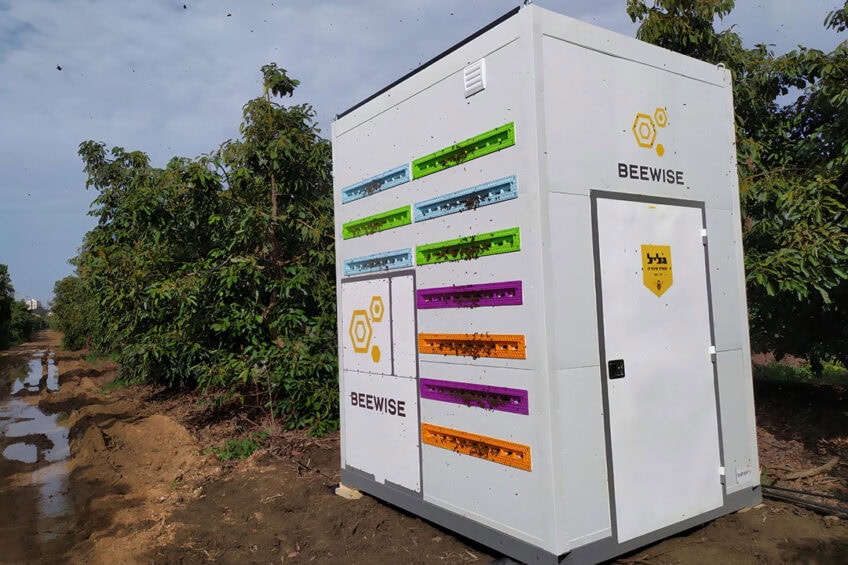Australia and New Zealand next for smart Beehome

Israeli startup Beewise would like to introduce its AI-powered automated beehive Beehome to Australia and New Zealand.
Saar Safra, CEO of BeeWise, said on the Australian ag tech meeting place EvokeAg that his company has found, after rigorous testing in the US, that the BeeHome can contain approximately 24 hives which equates to millions of bees. He assumes that the Beehome would work well in Australia too.
The Australian market
Mr Safra explained that he is ‘pretty amazed and surprisingly delighted by the Australian market’. “We have a lot of demand for our device and people are taking the initiative to talk with us about it”, Mr Safra said. “And while we are currently focused on the North American market, Australia and New Zealand are next.”
He pointed out that Beewise is just starting to learn about the Australian market. The company is currently searching for and finding the right partners down under. Beewise first wants to analyse and understand the needs of the Australian market are. Mr Saffra: “What are the opportunities, where can we help? Is there real value in what we can produce? Based on that, we decide our next step.”
Increases pollination capacity
The autonomous solar-powered beehive integrates an AI-controlled robotic beekeeper to protect and nurture bees in their natural habitat. Only a few weeks ago Beewise commercially launched its smart home for bees in California. The company also recently announced a US $10 million Series A funding round led by Fortissimo Capital.
Utilizing 24/7 monitoring and smart technology that significantly increases pollination capacity and honey production, Beehome automatically detects threats to a honeybee colony such as pesticides or the presence of parasites. The robotic system responds by addressing the threat in real-time, in the field. This round the clock surveillance and treatment requires no human intervention. It protects the honeybee population and helps it thrive.
According to Beewise, with Beehome, colony collapse of bees is reduced by as much as 80 percent. Operational costs are slashed by as much as 90 percent, according to the company. Bees are protected in their natural habitat from multiple environmental threats, pollination is strengthened and honey production is increased, bolstering the entire ecosystem for long-term results.
Text continues underneath video
While Australia remains the only continent free of the varroa mite, globally the tiny parasite has crippled honey bees, particularly in Europe and North America. Beewise has created an incubator where the bee larva frames are heated which destroys the mite without hurting the brood.
For the past three years Mr Safra and his team have been trialling their device using test beds in California and Israel. The Beehome costs US $400 per month. Beewise will keep adding features to its design.
Join 17,000+ subscribers
Subscribe to our newsletter to stay updated about all the need-to-know content in the agricultural sector, two times a week.



